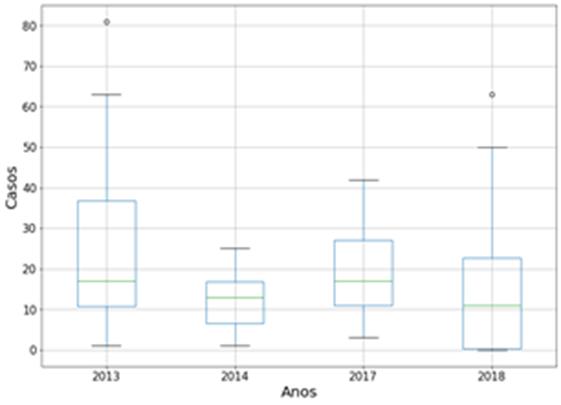Estudo Comparativo de Técnicas de Previsão para Casos de Dengue
##plugins.themes.bootstrap3.article.main##
Resumo
A dengue é uma infecção viral que se espalha rapidamente e é endêmica em mais de 100 países tropicais e subtropicais da África, América e regiões da Ásia-Pacífico. Geralmente, a epidemiologia da dengue é influenciada por uma complexa interação de fatores que incluem rápida urbanização e aumento da densidade populacional, capacidade dos sistemas de saúde, eficácia dos sistemas de controle de vetores, limpeza urbana etc. No Brasil que é considerado um país tropical, há uma incidência de casos crescente nos últimos anos, em específico na capital Pernambucana Recife há um ambiente propício para o aumento expressivo dos casos de dengue como são apresentados pelo Boletim Epidemiológico da Secretaria de Vigilância em Saúde do Ministério da Saúde. O presente trabalho apresenta um estudo comparativo de técnicas de Mineração de Dados seguindo a abordagem CRISP-DM, para um modelo de previsão de casos de Dengue no Recife-PE.
Downloads
Não há dados estatísticos.
##plugins.themes.bootstrap3.article.details##
Como Citar
Alves, G., Oliveira, T., Campos, G., Souza, L., & Silva Neto, S. (2021). Estudo Comparativo de Técnicas de Previsão para Casos de Dengue. Revista De Engenharia E Pesquisa Aplicada, 6(3), 12-20. https://doi.org/10.25286/repa.v6i3.1683
Seção
Edição Especial em Ciência de Dados e Analytics


